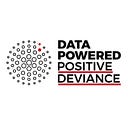Launching the Data-Powered Positive Deviance Course
By Robin Nowok, Andreas Pawelke, Basma Albanna, Omeed Behmaram-Mosavat
This article was first published on the GIZ Data Lab blog
We’re excited to launch our self-paced online course on Data-Powered Positive Deviance (DPPD). Take the course and learn how to leverage digital data to identify and learn from successful practices to tackle complex challenges.
Why are we offering this course?
In addition to the various DPPD projects we’ve implemented across the globe — from Indonesian farmers with higher rice yields to Somali pastoralists who have managed to keep their rangelands intact during droughts — we’ve also conducted several trainings to help practitioners learn about DPPD and apply the method in their work. The positive response from participants and the many requests from others eager to learn about DPPD prompted us to create this course to make the DPPD method more widely accessible.
It complements our existing resources, including the DPPD handbook, our academic papers, and our collection of blog posts documenting practical applications of the method. Whether you’re a seasoned professional or just starting your journey in development and data analysis, you now have a comprehensive, self-paced option to getting started with DPPD.
To access the course, go to atingi.org and search for “Data-Powered Positive Deviance” or click on this link.
What is Data-Powered Positive Deviance?
Data-Powered Positive Deviance (DPPD) is a new method that combines the principles of Positive Deviance with the power of digital data and advanced analytics. Positive Deviance is based on the observation that in every community or organization, some individuals achieve significantly better outcomes than their peers, despite having similar challenges and resources. These individuals or groups are referred to as positive deviants.
The DPPD method follows the same logic as the Positive Deviance approach but leverages existing, non-traditional data sources, either instead of or in conjunction with traditional data sources. This allows for the identification of positive deviants on larger geographic and temporal scales. Once identified, we can then uncover the behaviors that lead to their success, enabling others to adopt these practices.
In a world where top-down solutions often fall short, DPPD offers a fresh perspective. It focuses on finding what’s already working within communities, rather than imposing external solutions. This can lead to more sustainable, culturally appropriate, and effective interventions.
Course overview
Our online course is designed to get you started on your DPPD journey. Through five modules, you’ll gain both theoretical knowledge and practical skills to apply DPPD in your own work.
Module 1: Understand Data-Powered Positive Deviance
In the first module, you’ll explore the conceptual thinking behind DPPD. You’ll learn about the Positive Deviance approach and the DPPD method, understand the key principles underpinning the method, and see how it differs from traditional problem-solving methods.
Module 2: Assess problem-method fit
Not every challenge lends itself to the DPPD method. This module equips you with the knowledge to discern when DPPD is an appropriate method for tackling a problem. You’ll explore the distinct characteristics that make certain issues particularly well-suited for DPPD. We’ll also guide you through common mistakes practitioners make when applying the method and provide strategies to avoid these stumbling blocks.
Module 3: Determine positive deviants
This module focuses on the core of DPPD: identifying positive deviants using digital data. You’ll learn a range of techniques and strategies essential for this process. The module includes lessons on defining and measuring outperformance while ensuring the accurate identification of positive deviants.
Module 4: Discover underlying factors
Once positive deviants are identified, this module helps you understand what drives their success. You’ll learn ways to analyze factors contributing to exceptional performance and different approaches to data collection. The module also covers strategies for synthesizing insights from multiple data sources, equipping you with the skills to uncover the key elements that set positive deviants apart and inform effective interventions.
Module 5: Design, implement and monitor interventions
The final module guides you through translating findings into actionable interventions. You’ll explore principles of DPPD-based intervention design, strategies for scaling successful practices, and methods for monitoring and evaluation. This module equips you with the tools needed to transform DPPD insights into real-world impact, bridging the gap between analysis and implementation.
Who this course is for
Our course is designed for a diverse audience of professionals and students who are passionate about driving positive change through data-driven approaches as well as those eager to simply learn more about this innovative method. This course is ideal for:
- Development professionals seeking new ways to tackle complex challenges
- Data analysts or researchers interested in applying theirs skills to social and developmental issues
- Policy makers and public administrators aiming to incorporate data-driven strategies in policy formulation and implementation
- Students and academics in fields related to development studies, data science, public policy, and sociology
While a basic understanding of data analysis concepts can enhance your learning experience, no prerequisite knowledge is required. We’ve designed the course to be accessible to beginners while still offering depth for more experienced practitioners.
Ready to get started?
Don’t miss this opportunity to be at the forefront of data-driven innovation. Join our DPPD course at no cost today, get your course certificate and start your journey towards more effective, sustainable problem-solving.
To access the course, go to atingi.org and search for “Data-Powered Positive Deviance” or click on this link.
Harness the power of data to drive positive change and become a DPPD practitioner!
